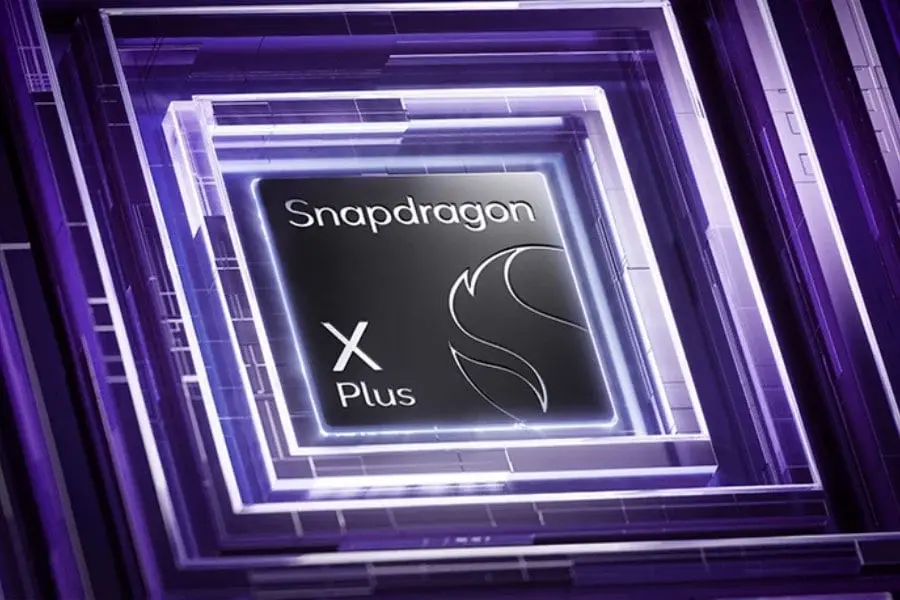Qualcomm's Snapdragon X Elite processors have been a formidable competitor to Apple in terms of laptop performance, AI capabilities, and battery longevity.
At the IFA 2024 event, Qualcomm is now shifting focus towards cost-effectiveness with the introduction of the Snapdragon X Plus. This budget-friendly variant aims to make AI-driven laptops more accessible, with potential starting prices as low as $700.
Before you consider making a purchase, let's delve into the details and implications for your upcoming laptop decision.
The X1P Chip Variants
The new processors are available in two versions: the X1P-46-100 and the X1P-42-100. The X1P-46-100 can reach a CPU speed of 4.0 GHz for single-core tasks, with a GPU performance of 2.1 TFLOPS (compared to 3.8 TFLOPS for the 10-core X Plus and 4.6 for the higher-end Snapdragon X Elite models). In contrast, the X1P-42-100 boosts to 3.4 GHz and has a 1.7 TFLOPS GPU. Despite these differences, all Qualcomm NPUs offer 45 trillion operations per second (TOPS), similar to the Snapdragon X Elite. Laptops utilizing these chips will feature the Copilot+ label.
Here are the specifications for the Snapdragon X Plus (X1P-42-100):
- Cores: 8
- Frequency (max): 3.4 GHz
- Memory bandwidth: 135 GB/s
- Cache (total): 30 MB
Microsoft indicates that laptops powered by these new Qualcomm chips will handle more generative AI and machine learning tasks locally, reducing reliance on cloud services. Even if AI isn't your primary interest, the Copilot+ PC label offers benefits. Every laptop with this label includes at least 16GB of RAM and 256GB of solid-state storage, enhancing functionality for web browsing and general computing tasks.
Understanding the Performance
While these chips may not set new performance records, they are expected to handle everyday tasks like browsing, document editing, and streaming effectively.
For example, Tom's Guide tested the Asus Vivo S 15 equipped with Qualcomm's X Plus chips. Here’s how they stack up against the Apple M3 MacBook Air in Geekbench 6:
| Chip | Geekbench 6 Single-Core | Geekbench 6 Multi-Core |
|---|---|---|
| Snapdragon X Plus 8-core (X1P-46-100) | 2780-2813 | 11713-12001 |
| Snapdragon X Plus 8-core (X1P-42-100) | 2385-2445 | 11027-11530 |
| Apple M3 MacBook Air | 3082 | 12087 |
As evident, both single-core and multi-core performance lag behind Apple's offerings. The same trend is observed in graphics, with the X1P-46-100 achieving approximately 26 FPS in the demanding WildLife Extreme Vulkan benchmark.
| 3D Mark Wildlife Extreme | FPS |
|---|---|
| Snapdragon X Plus (X1P-46-100) | 41 |
| Snapdragon X Elite (X1E-80-100) | 36 |
| Apple M3 | 45 |
The upside? This reduced performance could potentially result in extended battery life. While official figures are not yet available, these chips might power laptops for longer durations due to lower processing demands.
Manufacturers and Availability
Several manufacturers have embraced the new chip announcement. Asus offers a Vivobook S 15 featuring the 8-core X Plus for $899—a significant reduction from its 12-core X Elite counterpart, priced at $1,300. Similarly, Dell's Inspiron 14 is priced at $899 with this new chip.
Expect additional announcements from Acer, HP, Lenovo, and Samsung. Rumors suggest the $999 Acer Swift Go 14 AI and a new 15-inch Samsung Galaxy Book4 Edge will debut in October.
Although these budget-friendly Snapdragon X Plus laptops may take time to arrive in stores, their price points provide a clear expectation.
Is the X Plus Right for You?
So, who should consider a laptop with the new Snapdragon X Plus chip? Here’s a quick guide:
- Budget-Conscious Buyers: If you're seeking an AI-powered laptop experience without a hefty price tag, starting prices around $700 are significantly lower than current alternatives.
- Battery Life Enthusiasts: If extended battery life in a Windows device is your priority, these chips could be appealing, especially if manufacturers design for efficient power use.
Conclusion
The Snapdragon X Plus 8-core presents an intriguing choice, blending affordability with AI integration for daily tasks. However, its performance falls short when compared to top-tier options.
The critical factor will be real-world application performance and how manufacturers incorporate these chips into their laptops. If cost-effectiveness and battery life are your priorities and you don't require high-demand performance, the X Plus could be a worthy contender.
On the other hand, if top-notch performance is crucial, consider higher-end Qualcomm models or established brands like Apple.


Leave a Reply